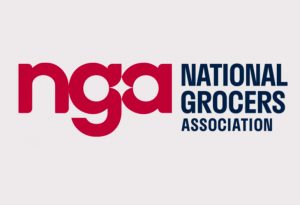Washington D.C. – The National Grocers Association (NGA), the trade association representing the independent supermarket industry, on Thursday applauded the introduction of the Pharmacy DIR Reform to Reduce Senior Drug Costs Act in both chambers of Congress.
 The NGA said the legislation seeks to reduce patients’ cost-sharing, prevent plans and pharmacy benefit managers (PBMs) from clawing back fees from pharmacies, enhance price transparency, and establish consistent pharmacy performance measures that foster quality care and that enhance the viability and predictability of pharmacy operations.
The NGA said the legislation seeks to reduce patients’ cost-sharing, prevent plans and pharmacy benefit managers (PBMs) from clawing back fees from pharmacies, enhance price transparency, and establish consistent pharmacy performance measures that foster quality care and that enhance the viability and predictability of pharmacy operations.
The Senate bill was introduced by U.S. Sens. Jon Tester (D-MT), Shelley Moore Capito (R-WV), Sherrod Brown (D-OH) and James Lankford (R-OK), while the House version was introduced by U.S. Reps. Peter Welch (D-VT), Morgan Griffith (R-VA), Buddy Carter (R-GA), Vicente Gonzalez (D-TX), Diana Harshbarger (R-TN), Abigail Spanberger (D-VA), John Rose (R-TN) and Raja Krishnamoorthi (D-IL).
“Many independent grocery pharmacies across America serve communities where patients’ options to fill prescriptions or receive health care are slim,” said Robert Yeakel, NGA’s director of government relations. “For years now, many of our members have been forced to shutter their pharmacy operations due to the out-of-control cost increases levied on them in the form of direct and indirect remuneration (DIR) fees.”
DIR fees charged by payers to pharmacies – commonly weeks or months after a prescription has been filled – have the net effect of needlessly inflating Medicare patients’ out-of-pocket prescription drug costs and jeopardizing the viability of pharmacies, according to the NGA, which said that “most DIR fees charged to pharmacies from PBMs are based on ‘performance assessments’ that are arbitrary, lack transparency and oversight, and are often inappropriate based on the drugs the pharmacy dispenses and manages.”
According to the Centers for Medicare & Medicaid Services (CMS), fees based on “performance” measures skyrocketed by 225% from 2012 to 2017. As a result, according to IQVIA data, more than 2,300 pharmacies in the United States closed between December 2017 and December 2020.
“Independent community grocers and their pharmacies have played a vital role during the COVID-19 pandemic,” NGA president and CEO Greg Ferrara said. “At a time when Americans rely on their grocery pharmacy for testing, vaccinations and other health care needs, we ask Congress to advance this legislation to protect Americans’ access to services from local community businesses.”




You must be logged in to post a comment Login